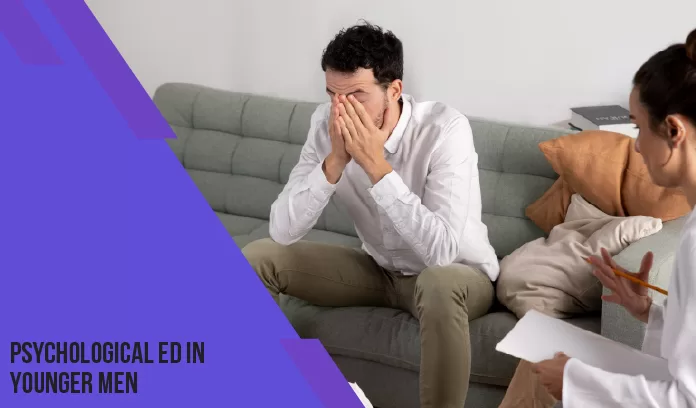Erectile dysfunction (ED) is often viewed as a condition affecting older adults, yet many younger men experience it too. While physical causes like blood pressure or hormone levels are more common with age, younger men are more likely to face ED due to psychological factors.
Performance Anxiety
Performance anxiety is a major psychological cause of ED in younger men. It often stems from pressure to perform perfectly during intimacy, leading to stress and tension. This anxiety disrupts arousal and can create a cycle of fear and avoidance that worsens the condition over time if not addressed.
Low Self-Esteem
Young men struggling with body image or self-worth may experience difficulty achieving or maintaining erections. Negative self-perception can affect confidence in relationships and intimacy. Therapy and self-acceptance practices can help improve self-esteem and reduce its impact on sexual performance and overall emotional well-being.
Stress and Mental Exhaustion
Academic pressure, career demands, or financial stress can drain mental energy and increase cortisol levels, affecting libido and erectile function. Stress management through exercise, relaxation techniques, and time management can help restore balance and improve sexual health for younger men dealing with everyday stressors.
Depression
Depression can lower sexual desire and interfere with arousal. It often leads to withdrawal from intimate relationships and contributes to feelings of guilt or inadequacy. Treating the underlying depression through counselling, lifestyle changes, or medication may restore both emotional and sexual well-being.
Relationship Issues
Conflicts, lack of communication, or unresolved tension with a partner can lead to psychological ED. Emotional disconnection or fear of rejection may prevent arousal. Relationship counselling or open conversations can improve trust, resolve issues, and rebuild intimacy, ultimately helping to alleviate ED caused by emotional distance.
Porn-Induced ED
Excessive pornography use may condition the brain to respond only to artificial stimulation. This can desensitise real-life arousal and lead to difficulty during partnered sex. Reducing consumption and allowing the brain to reset can often improve natural sexual responses and rebuild confidence in physical relationships.
Fear of Pregnancy or STIs
Anxiety about potential consequences of sexual activity, such as unplanned pregnancy or infections, may interfere with arousal. Educating oneself about protection, testing, and contraception can reduce these fears and support a healthier, more confident sexual experience with one’s partner.
Traumatic Sexual Experiences
Past trauma or negative sexual encounters can create long-lasting mental barriers. These may trigger anxiety or flashbacks during intimacy. Working with a trained therapist helps process trauma, build healthy coping strategies, and develop safe and positive experiences that support recovery and improve sexual function.
Guilt and Cultural Conditioning
Feelings of guilt related to sexual activity due to religious, cultural, or familial beliefs can subconsciously inhibit desire. Addressing and unlearning harmful conditioning through education or therapy can help men view sexuality in a healthier way and improve both mental and sexual well-being.
Unrealistic Expectations
Social media and unrealistic portrayals of sex can shape distorted beliefs about how intimacy should look or feel. Comparing oneself to idealised standards may lead to performance pressure and ED. Understanding real-life relationships and focusing on connection over perfection helps reduce pressure and build sexual confidence.
Conclusion
Psychological ED in younger men is more common than many think and is highly treatable. Understanding the mental and emotional roots behind the condition can be empowering and lead to better intimacy, health, and self-esteem.


